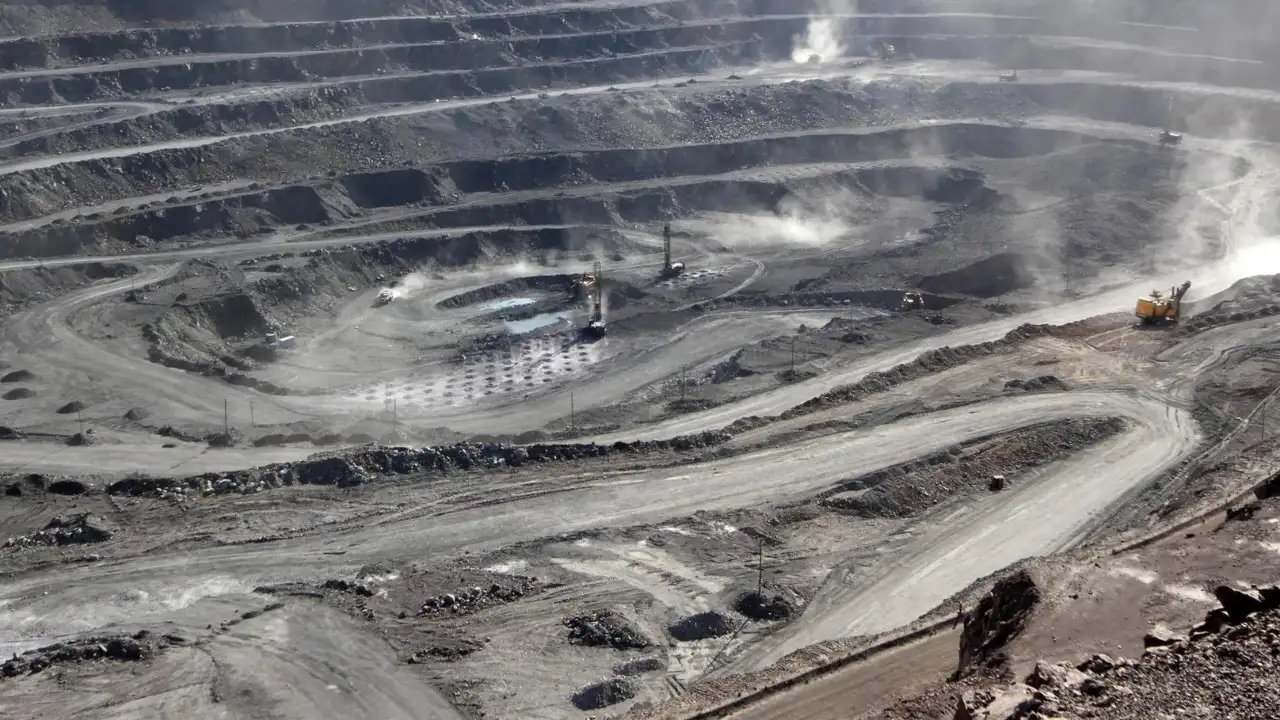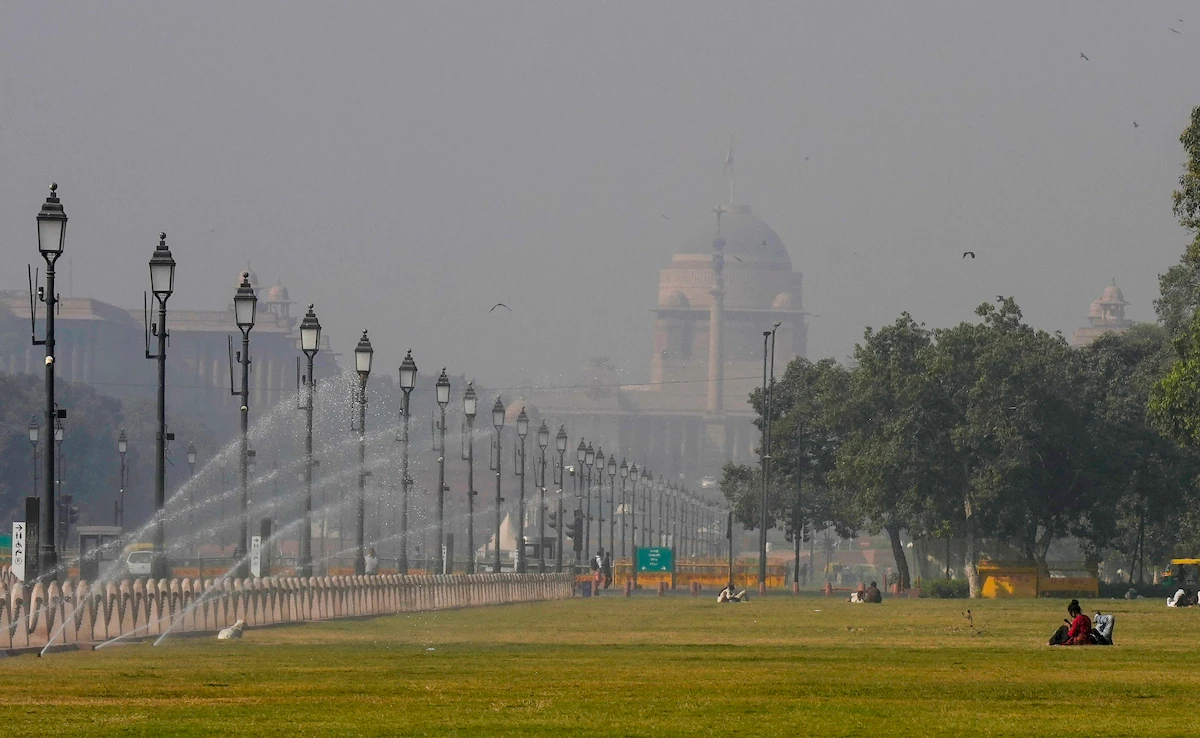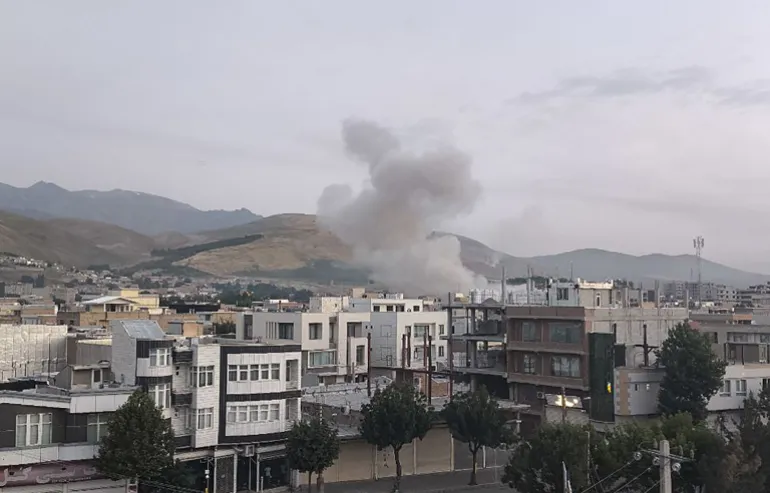- Courses
- GS Full Course 1 Year
- GS Full Course 2 Year
- GS Full Course 3 Year
- GS Full Course Till Selection
- Answer Alpha: Mains 2025 Mentorship
- MEP (Mains Enrichment Programme) Data, Facts
- Essay Target – 150+ Marks
- Online Program
- GS Recorded Course
- Polity
- Geography
- Economy
- Ancient, Medieval and Art & Culture AMAC
- Modern India, Post Independence & World History
- Environment
- Governance
- Science & Technology
- International Relations and Internal Security
- Disaster Management
- Ethics
- Current Affairs
- Indian Society and Social Issue
- NCERT- Science and Technology
- NCERT - Geography
- NCERT - Ancient History
- NCERT- World History
- CSAT
- 5 LAYERED ARJUNA Mentorship
- Public Administration Optional
- ABOUT US
- OUR TOPPERS
- TEST SERIES
- FREE STUDY MATERIAL
- VIDEOS
- CONTACT US
India Stops Rare Earth Exports to Focus on Its Own Needs
India Stops Rare Earth Exports to Focus on Its Own Needs

Why in the News?
- The Government of India has directed the state-run company IREL to suspend its long-standing agreement with Japan for the export of rare earth elements.
- This step has been taken to ensure that rare earth minerals are first used to meet India’s domestic needs, especially in critical sectors like defence, electronics, and clean energy.
- A key motive behind the move is to reduce India’s dependence on China, which currently dominates the global rare earth processing industry.
- This decision is also part of a broader strategy to strengthen India’s control over its critical mineral resources and ensure long-term national security.
|
IREL (Indian Rare Earths Limited):
Rare Earth Elements:
|
Key Highlights of the News
- Background of the India-Japan Rare Earth Agreement:
- IREL supplies rare earths to Toyota Rare Earths India, a subsidiary of Japan’s Toyota Tsusho.
- This unit processes the rare earths in India, after which the refined materials are exported to Japan.
- These are then used to make magnets which can be used in electric vehicles, wind turbines, and other advanced technologies.
- Significant Export Volume in 2024:
- In the year 2024 alone, over 1000 metric tonnes of rare earth materials were exported from India to Japan.
- This shows the scale of the trade and the role India played as a supplier.
- China’s Global Dominance in Rare Earths:
- Globally, China processes nearly 90% of rare earth elements.
- This gives it a strategic advantage in high-tech manufacturing and weapon systems.
- India’s decision is aimed at breaking this monopoly and developing its own processing capacity.
- Domestic Capacity Limitations:
- IREL currently lacks advanced infrastructure for rare earth processing.
- It is still awaiting statutory clearances at four of its mines.
- This indicates that delays and the lack of necessary approvals have become major hurdles in expanding the domestic production capacity of rare earth metals.
- Policy and Strategic Shift:
- The move reflects India’s growing focus on national security in mineral resource management.
- The government is reviewing export policies related to critical minerals, especially those required in future-ready technologies like EVs, semiconductors, and defence systems.
Implications for India
- Strengthening Domestic Industries:
- By retaining rare earth resources within the country, India can support its domestic industries that rely on these critical materials.
- Sectors like renewable energy, electronics, and electric mobility will benefit from a steady and secure supply of raw materials.
- Strategic Reduction in China Dependence:
- Developing domestic processing capacities will help India reduce its heavy reliance on China.
- This will enhance India’s strategic autonomy in critical sectors.
- Push Towards a Self-Reliant Economy:
- The move supports the vision of 'Atmanirbhar Bharat' by encouraging indigenous capabilities in the mining and processing of rare earths.
- It also helps to reduce the dependency on external sources for high-value materials.
- Impact on Bilateral Relations:
- Suspending the agreement with Japan may lead to temporary diplomatic or trade-related friction.
- However, the decision also presents an opportunity to explore deeper forms of cooperation, such as joint ventures in rare earth processing.
- It can further lead to technology-sharing agreements, which would be beneficial for both India and Japan in the long term.
- Strengthening India's Mineral Security Strategy:
- The decision is part of India’s larger effort to build a secure and sustainable supply chain for critical minerals.
- It aligns with global trends where nations are reassessing their dependencies and building internal resilience.
Challenges and Way Forward
|
Challenges |
Way Forward |
|
|
|
|
|
|
|
|
|
|
|
Ensure IAS Mains Question: Q. Discuss the strategic significance of rare earth elements for India. In this context, critically examine the role of IREL (India) Limited in strengthening India’s rare earth value chain and reducing external dependencies. (150 words) |
|
Ensure IAS Prelims Question: Q. Consider the following statements about IREL (India) Limited:
Which of the statements given above is/are correct?
Answer: b Explanation: Statement 1 is incorrect: IREL operates under the Department of Atomic Energy, not the Ministry of Mines. Statement 2 is correct: IREL is engaged in the mining and processing of rare earth elements and beach sand minerals like ilmenite, rutile, zircon, and garnet. |
|
Also Read |
|
UPSC Foundation Course |
|
| UPSC Monthly Magazine | CSAT Foundation Course |




